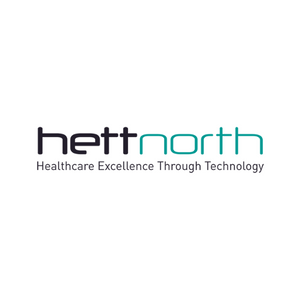As the NHS continues to work towards reducing the elective backlog, there’s a continued pressure to find effective solutions that facilitate a more efficient way to deliver care. Robotic Process Automation (RPA) is one of the digital solutions being adopted by the NHS with the hopes of the tool increasing efficiency and improving staff wellbeing and patient outcomes.
But what is RPA and how is it currently being used to remove repetitive work the NHS?
What is RPA and how can it assist the NHS?
Robotic Process Automation (RPA) is a form of automation that enables individuals to program robots to carry out tasks that were once only possible for humans to perform. RPA imitates activities carried out by humans, particularly high volume, rule-based, repeatable tasks. However, RPA can only handle structured and digitised data.
With its ability to automate mundane and repetitive administrative tasks, RPA could help healthcare systems achieve rapid digital transformation and become more efficient. By freeing up valuable staff time – both clinical and non-clinical – healthcare professionals can focus on higher-value activities, including spending more time with patients.
How RPA is being used to automate processes in the NHS
Example use cases of how RPA is being generally used across the NHS include:
- Front office: patient administration and appointment scheduling
- Middle office: report generation and distribution, operational and service management
- Back office: corporate functions including HR and finance
We have also seen some early wins with digital productivity tools in the NHS, which Jade Ackers, Programme Director Digital Productivity, NHS Transformation Directorate, shared with us in our recent interview ‘Scaling RPA Solutions’:
- Worcestershire Health and Care NHS Trust – have used speech recognition technology which has assisted in reducing the admin burden of updating patient records by streamlining workflows and reducing pressure on staff. This has enabled them to free up time for patient care, make better use of tools and systems, help with recruitment, training, wellbeing and digital culture.
- Surrey NHS Trust – deployed a Mind Matters AI chatbot which has been designed to enhance talking therapies, referral workflow and staff wellbeing.
- Mid Yorkshire hospitals – completing a 12 month pilot across 3 hospitals to automate its e-learning process to provide staff with access to learning as quickly as possible. The pilot has seen a saving of 72% of time taken to register new staff for e-learning.
- Midlands Partnership NHS - used RPA to clear the backlog of 40,000 documents by improving document scanning processes and reducing processing time by 75%.
You can watch the interview and find out more about scaling RPA solutions and its current use cases here.
Accelerating safe RPA adoption in the NHS
RPA has gained traction in the NHS over the last few years, particularly since the pandemic. The key focus of the adoption of RPA has been to work towards clearing the elective recovery backlog whilst looking after the wellbeing of NHS staff.
However, the level of RPA adoption across the NHS varies greatly, and the main hurdle to overcome in its adoption is how to effectively educate and inform NHS stakeholders to promote and accelerate the secure implementation of RPA. This is a key topic that will be touched on at the upcoming Leading Healthcare Innovation Summit.
Find out more about RPA adoption in the NHS at HETT North
You can find out more about driving productivity in the NHS with RPA at HETT North in Manchester on 28th February 2024. The packed agenda includes over 40 hours of CPD-accredited content featuring over 100 esteemed speakers who will be covering topics such as automation, AI, Integrated Care Systems and data.
Photo by Flickr: https://www.pexels.com/photo/silver-metal-round-gears-connected-to-each-other-149387/
%20(1).png?width=500&height=58&name=HETT%20insights%20logo%20RGB-04%20(1)%20(1).png)


